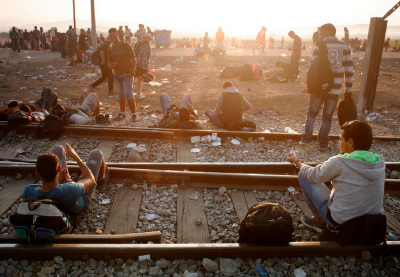
Catholic Relief Services (CRS), in partnership with the Klau Center, has published an innovative curriculum focused on human trafficking. The teaching modules are part of the CRS Faculty Learning Commons, a set of interdisciplinary online educational resources.
Developed by the Klau Center during the 2017-18 academic year by professor Christine Cervenak, the curriculum’s seven modules address various aspects of global human trafficking by presenting a wide range of approaches to the problem. An overview of the topic leads to an in-depth exploration of root causes, complexities in labor and sex trafficking, consideration of effective and ethical responses, and reflections upon the relationship of Catholic Social Teaching and the effort to end modern slavery.
Student engagement was key to the development of the curriculum. Modules were workshopped by Cervenak’s Notre Dame students, who conceptualized first the broad array of approaches to each topic, then researched and refined the modules’ pedagogical approach. Each module engages a number of complementary perspectives including readings, case studies, activities, online resources, and more.
The initiative highlights the deep relationship enjoyed by the University of Notre Dame and CRS. “It’s been a privilege to partner with Catholic Relief Services on this important project,” says Klau Center assistant director Dory Mitros Durham. "Their extensive network of practitioners across the globe, profound commitment to human dignity, and dedication to educational excellence serve as an ideal platform for these innovative teaching tools. Particularly important to the Klau Center was the involvement of students in curricular development, which brought fresh, forward-thinking ideas to bear on a pressing human crisis."
The human trafficking modules can be accessed at CRS Faculty Learning Commons, here.